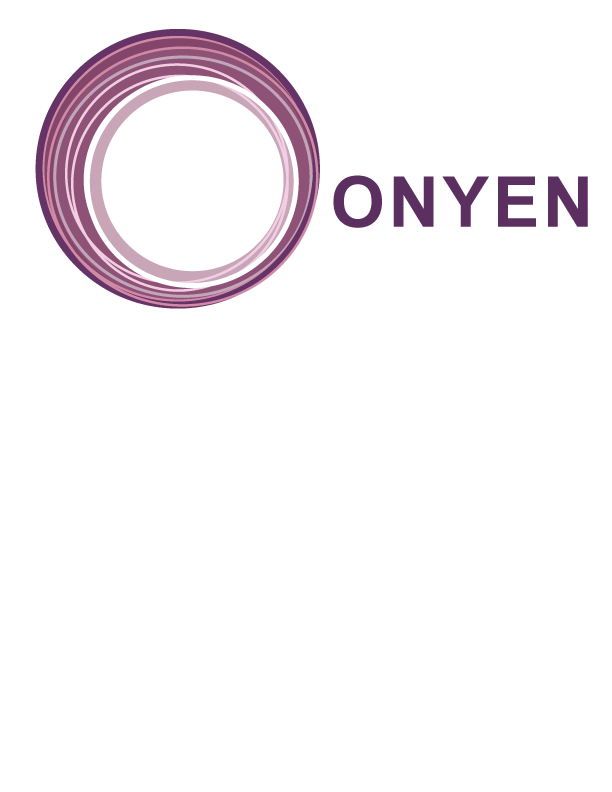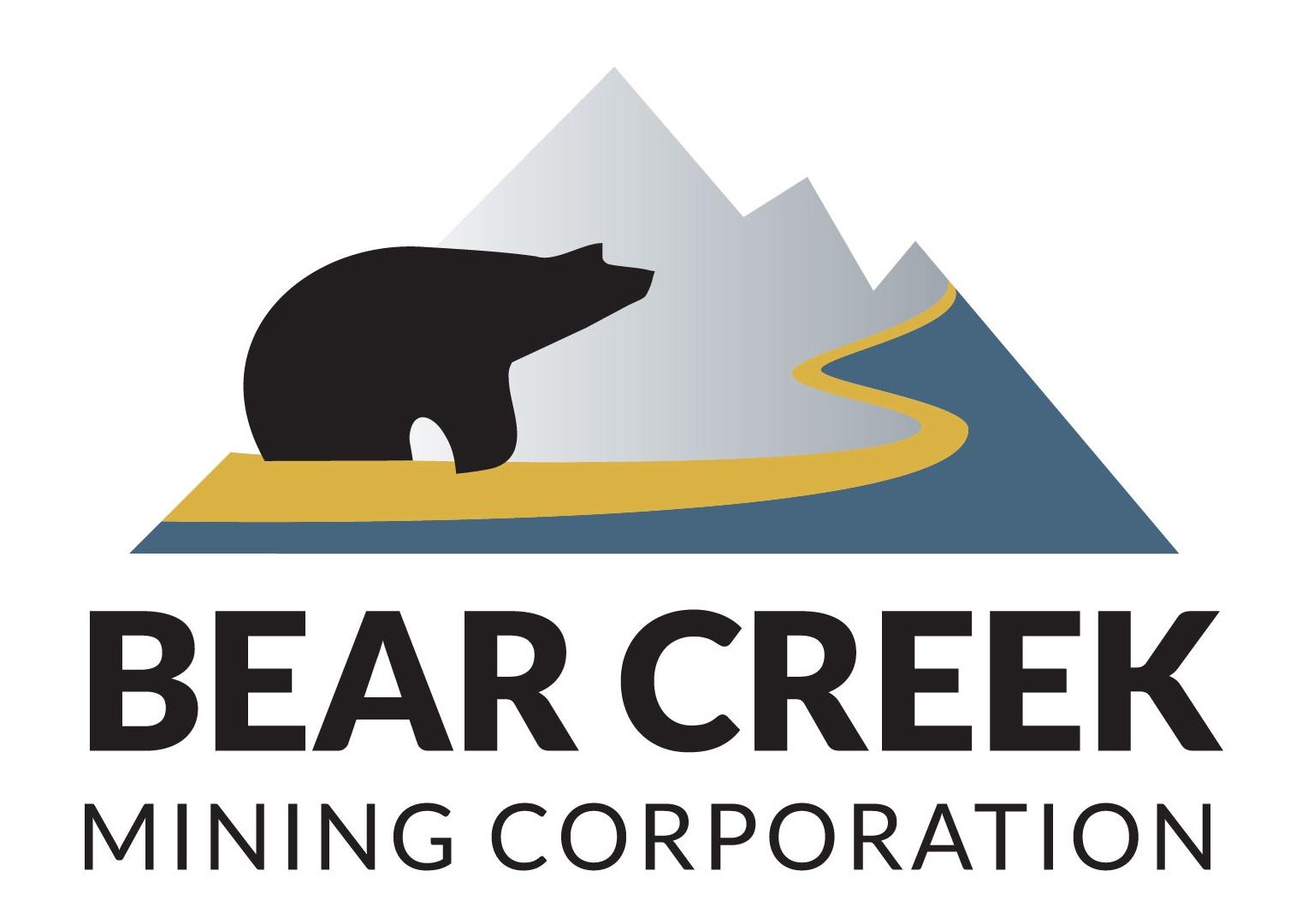 |
|||||||||||||||||||||||
|
|||||||||||||||||||||||
| Published on June 9, 2022 | |||||||||||||||||||||||
|
This ESG Report and Scorecard for the year ended December 31, 2021 is Bear Creek Mining Corporation's foundational ESG report. Bear Creek Mining places significant importance on social responsibility, environmental stewardship and good governance and is pleased to commence formal reporting of its performance in these areas. The Company's only material mineral project during 2021 was the development-stage Corani silver-lead-zinc deposit located in southern Peru. |
|||||||||||||||||||||||
| Disclaimer and Forward Looking Statements | |||||||||||||||||||||||
| Company Profile | |||||||||||||||||||||||
| Organizational Profile | |||||||||||||||||||||||
| Name | Bear Creek Mining Corporation | ||||||||||||||||||||||
| Describe nature of activities, brands, products and services |
Bear Creek Mining Corporation is a Latin America focused mineral exploration and mining company. We strive for excellence in project execution, technical skill, stakeholder accountability, financial rigour, environmental and social responsibility, and corporate governance. Our executives and directors have a substantial breadth and depth of experience discovering, advancing, financing, developing, constructing, and operating mines in Latin America. |
||||||||||||||||||||||
| Link to Corporate Website | https://bearcreekmining.com/ | ||||||||||||||||||||||
| Industry Classification |
NAICS: 21222 Gold and silver ore mining |
||||||||||||||||||||||
| Market Capitalization | $100 Million up to $1 Billion USD | ||||||||||||||||||||||
| Type of Operations | Exclusively non-producing operations | ||||||||||||||||||||||
| Company Headquarters | Vancouver, Canada | ||||||||||||||||||||||
| Link to company's statements of: Purpose, Vision, Mission and Values; Sustainability/ESG strategy; previously published Sustainability/ESG performance or reports. (URL) |
https://bearcreekmining. com/sustainability/overview/ |
||||||||||||||||||||||
|
This report is the foundational report for the disclosure of ESG performance for Bear Creek Mining Corporation. Social Responsibility |
|||||||||||||||||||||||
| ESG Accountability | |||||||||||||||||||||||
| Role and Name of highest authority within company for Environment, Social and Governance strategy, programs and performance. |
Anthony Hawkshaw, President, CEO, and Director |
||||||||||||||||||||||
| ESG Reporting Period | |||||||||||||||||||||||
| Unless otherwise noted, all data contained in this report covers the following period: | |||||||||||||||||||||||
| From | 2021-01-01 | ||||||||||||||||||||||
| To | 2021-12-31 | ||||||||||||||||||||||
| Geographic Scope of Report | |||||||||||||||||||||||
| Unless otherwise noted, the data in this report covers ESG matters related to the following locations of operations | Peru | ||||||||||||||||||||||
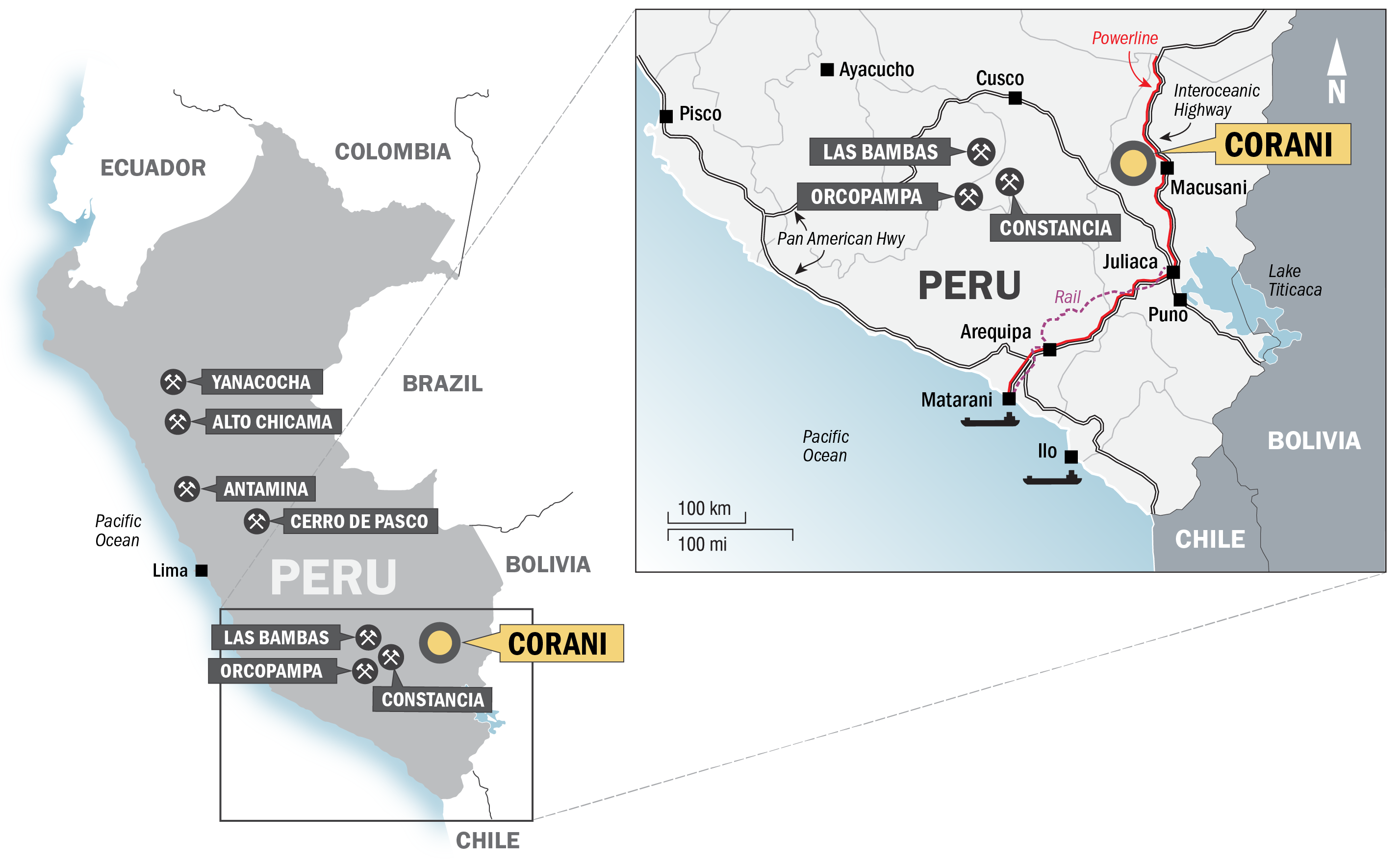 |
|||||||||||||||||||||||
| Identify notable exclusions, and reference any existing or planned reports that do or will address these (e.g, assets recently divested or acquired, non-managed joint ventures, specific exploration activities, recently closed sites, etc.) |
Bear Creek has two non-material mineral assets that are not included in this report. See details below. |
||||||||||||||||||||||
|
Bear Creek has title to the Tassa gold-silver property in Peru; an early stage mineral exploration project that is currently under option agreement to a third party. The Tassa project is not material to Bear Creek Mining. Under the terms of the Tassa option agreement, the option holder is responsible for conducting $3 million in exploration activities at the property in order to earn a 51% interest in the project. During 2021, the option holder conducted no exploration activities at Tassa. The Company additionally holds a sliding scale Net Smelter Return royalty ("NSR") in the Maria Jose Project in Peru. The Maria Jose owner/operator conducted ongoing underground development work during 2021. Gold produced from this underground development during 2021 was on a scale insufficient to result in any material NSR payments to the Company. Bear Creek has no operational or ownership interest in the Maria Jose project. Accordingly, the Company is not including information related to the Tassa property or the Maria Jose project in this report and does not intend to report on these projects elsewhere. |
|||||||||||||||||||||||
| Fragile and Conflict-Affected Situations | |||||||||||||||||||||||
| Identify all of the entity's countries of operations that align with the World Bank's list of "Fragile and Conflict-Affected Situations" | None | ||||||||||||||||||||||
| Business Operations Scope of Report | |||||||||||||||||||||||
| Identify notable exclusions, and reference any existing or planned reports that do or will address these (e.g, assets recently divested or acquired, non-managed joint ventures, specific exploration activities, recently closed sites, etc.) |
During 2021, Bear Creek Mining was an exploration and development stage company with no mineral projects in operation. On December 17, 2021, Bear Creek announced it's intention to acquire the operating Mercedes gold-silver mine located in Sonora, Mexico. The Mercedes Mine acquisition closed on April 21, 2022 at which time ownership of the operation was transferred to the Company. Bear Creek intends to include the Mercedes operation in its 2022 ESG Report. |
||||||||||||||||||||||
| Mineral Resource Types in Scope | |||||||||||||||||||||||
| Which of the following mineral resource types are covered by this report |
• Inferred • Indicated • Measured |
||||||||||||||||||||||
| Mineral Reserve Types in Scope | |||||||||||||||||||||||
| Which of the following mineral reserve types are covered by this report |
• Proven • Probable |
||||||||||||||||||||||
| Currency | |||||||||||||||||||||||
| Unless otherwise noted, all financial figures referenced in this report are in the following currency | USD | ||||||||||||||||||||||
| Audit Status | |||||||||||||||||||||||
| Identify the degree to which any inputs of the report are third-party checked: | Self-Declared | ||||||||||||||||||||||
| Organizational Profile | |||||||||||||||||||||||
| Provide a list of externally-developed economic, environmental and social charters, principles, or other initiatives to which the organization subscribes, or which it endorses, e.g., GRI, UN Global Compact |
We have aligned ourselves with GRI Core, GRI Comprehensive, GRI Supplement, SASB, UN Global Compact, CDP, ISS, and the IFC Performance Standards. |
||||||||||||||||||||||
| Strategy | |||||||||||||||||||||||
| Provide a statement from the most senior decision-maker of the organization (i.e., CEO, chair, or equivalent senior position) about the relevance of sustainability to the organization and its strategy for addressing sustainability (CEO's message for this report) |
Please see attached Message from the President and CEO of Bear Creek Mining Corporation. |
||||||||||||||||||||||
 |
 |
||||||||||||||||||||||
| Sustainability Message from the President and CEO | |||||||||||||||||||||||
| Anthony Hawkshaw, President & CEO | |||||||||||||||||||||||
| Provide a description of key impacts, risks, and opportunities, |
Please see attached statement of environmental, social and economic impacts, risks and opportunities. |
||||||||||||||||||||||
 |
|||||||||||||||||||||||
| Bear Creek Mining Sustainability Impacts, Risks and Opportunities Statement | |||||||||||||||||||||||
| Ethics and Integrity | |||||||||||||||||||||||
| Provide a description of the organization’s values, principles, standards, and norms of behaviour |
The Company has adopted policies that underscore its commitment to high standards in the conduct of its business and that of its employees. These include a Code of Business Conduct and Ethics, a Whistleblower Policy and an Anti-bribery and Anti-Corruption Policy. These policies are attached herein and are available on the Company's website |
||||||||||||||||||||||
 |
 |
 |
|||||||||||||||||||||
| Code of Conduct and Business Ethics | Whistleblower Policy | Anti-Bribery and Anti-Corruption Policy | |||||||||||||||||||||
| Environment | |||||||||||||||||||||||
| Compliance | |||||||||||||||||||||||
| a. Report fines and non-monetary sanctions for non-compliance with environmental laws and/or regulations in terms of: | |||||||||||||||||||||||
| i. Total monetary value of significant fines | 0 | ||||||||||||||||||||||
| ii. Total number of non-monetary sanctions | 0 | ||||||||||||||||||||||
| iii. Cases brought through dispute resolution mechanisms | 0 | ||||||||||||||||||||||
| b. If the organization is in compliance with environmental laws and/or regulations, a brief statement if this fact is sufficient |
Bear Creek Mining complies with all environmental laws and regulations in the jurisdictions in which it operates. The Company has received congratulations from the government of Peru for fulfilling the commitments assumed in the permits it has received related to the Corani project. |
||||||||||||||||||||||
| Greenhouse Gas Emissions | |||||||||||||||||||||||
| Scope 1 | |||||||||||||||||||||||
| For your operations, disclose the gross global Scope1 greenhouse gas (GHG) emissions to the atmosphere of the seven GHGs covered under the Kyoto Protocol (tonne CO₂-e): | |||||||||||||||||||||||
| Carbon dioxide (CO₂) (tonne CO₂-e) | 466.353 | ||||||||||||||||||||||
| Methane (CH₄) (tonne CO₂-e) | 0 | ||||||||||||||||||||||
| Nitrous oxide (N₂O) (tonne CO₂-e) | 0 | ||||||||||||||||||||||
| Hydrofluorocarbon-23 (CHF₃) (tonne CO₂-e) | 0 | ||||||||||||||||||||||
| Hydrofluorocarbon-32 (CH₂F₂) (tonne CO₂-e) | 0 | ||||||||||||||||||||||
| Sulphur hexafluoride (SF₆) (tonne CO₂-e) | 0 | ||||||||||||||||||||||
| Nitrogen trifluoride (NF₃) (tonne CO₂-e) | 0 | ||||||||||||||||||||||
| Perfluoromethane (CF₄) (tonne CO₂-e) | 0 | ||||||||||||||||||||||
| Perfluoroethane (C₂F₆) (tonne CO₂-e) | 0 | ||||||||||||||||||||||
| Perfluorobutane (C₄F₁₀) (tonne CO₂-e) | 0 | ||||||||||||||||||||||
| Perfluorohexane (C₆F₁₄) (tonne CO₂-e) | 0 | ||||||||||||||||||||||
| The total amount of gross global Scope 1 GHG emissions (CO₂-e) (tonne) | 466.353 | ||||||||||||||||||||||
| The percentage of its gross global Scope 1 GHG emissions that are covered under an emissions-limiting regulation or program that is intended to directly limit or reduce emissions, such as cap-and-trade schemes, carbon tax/fee systems, and other emissions control (e.g., command-and-control approach) and permit-based mechanisms. | 0.0000% | ||||||||||||||||||||||
|
There are no specific reporting obligations and no GHG emission-limiting regulations in Peru. |
|||||||||||||||||||||||
| The entity shall discuss its long-term and short-term strategy or plan to manage its Scope 1 greenhouse gas (GHG) emissions. |
The Company is continuing to develop the detailed engineering of the Corani project and provisions are being made to use the best feasible technology in the operation designs. Likewise, estimates of the GHG emissions that would be generated during the construction and operation stages of the Corani project has been undertaken to identify opportunities to reduce the anticipated GHG emissions. |
||||||||||||||||||||||
| Intensity Ratio | |||||||||||||||||||||||
| The total amount of gross global Scope 1 GHG emissions (CO₂-e) (tonne) | 466.353 | ||||||||||||||||||||||
| Carbon Offset | |||||||||||||||||||||||
| Credits | |||||||||||||||||||||||
| How much CO₂ (metric tonnes) offset credits were purchased? | 0 | ||||||||||||||||||||||
|
The Company has not purchased carbon offset credits. |
|||||||||||||||||||||||
| What is the percentage of the offset to the total CO₂ equivalence? | 0.0000% | ||||||||||||||||||||||
| Air Emissions | |||||||||||||||||||||||
| Report emissions of air pollutants that are released into the atmosphere: | |||||||||||||||||||||||
| Emissions of carbon monoxide, reported as CO (tonne) | 0 | ||||||||||||||||||||||
|
As the Company’s Corani Project is not in production and no exploration activities were undertaken on site during 2021, air emissions for 2021 were not calculated and in any event are estimated to be minimal. The Company is not required to report air emissions to Peruvian authorities at this stage of its development. If and when construction of the Corani mine commences, the Company will calculate air emissions. At this time, the Corani Project undertakes air monitoring in two points located in the communities of Chacaconiza and Quelcaya. These programs have been approved by the Authority as part of the Company's baseline air monitoring. |
|||||||||||||||||||||||
| Emissions of oxides of nitrogen (NOx), reported as NOx (tonne) | 0 | ||||||||||||||||||||||
| Emissions of oxides of sulphur (SOx), reported as SOx (tonne) | 0 | ||||||||||||||||||||||
| Emissions of Particulate Matter 10 micrometres or less in diameter (PM₁₀), reported as PM₁₀ (tonne) | 0 | ||||||||||||||||||||||
| Emissions of lead and lead compounds, reported as Pb (tonne) | 0 | ||||||||||||||||||||||
| Emissions of mercury and mercury compounds, reported as Hg (tonne) | 0 | ||||||||||||||||||||||
| Emissions of non-methane Volatile Organic Compounds (VOCs) (tonne) | 0 | ||||||||||||||||||||||
| Energy Management | |||||||||||||||||||||||
| Total energy consumed in aggregate, in gigajoules (GJ) (hydrocarbons and electricity) including the fuel types used (e.g., biomass, hydro-electric power or bioenergy) | 979.78 | ||||||||||||||||||||||
| Percentage energy consumed that was supplied by grid electricity | 0.0000% | ||||||||||||||||||||||
| Percentage of energy consumed that is renewable energy | 0.0000% | ||||||||||||||||||||||
| Water | |||||||||||||||||||||||
| Efficiency | |||||||||||||||||||||||
| Proportion of water reused and recycled by the site to reduce the overall consumptive water demand: | 0.0000% | ||||||||||||||||||||||
| Water Management | |||||||||||||||||||||||
| Disclose the amount of water that was withdrawn from freshwater sources (in thousands of cubic meters): | 1.51 | ||||||||||||||||||||||
| Disclose the freshwater withdrawn in locations with High or Extremely High Baseline Water Stress as a percentage of the total water withdrawn | 0.0000% | ||||||||||||||||||||||
| Disclose freshwater consumed in locations with High or Extremely High Baseline Water Stress as a percentage of the total water consumed: | Does Not Apply | ||||||||||||||||||||||
| Disclose the amount of water that was consumed in its operations (in thousands of cubic meters) | 0 | ||||||||||||||||||||||
|
The Company did not have production from, or conduct water-consuming exploration activities such as drilling at, the Corani Project during 2021. |
|||||||||||||||||||||||
| Was your organization subject to any fines, enforcement orders, and/or other penalties for water-related regulatory violations | No | ||||||||||||||||||||||
| Total number of instances of non-compliance, including violations of a technology-based standard and exceedances of quality-based standards. | 0 | ||||||||||||||||||||||
| Water and Effluents | |||||||||||||||||||||||
| Water Consumption | |||||||||||||||||||||||
| Report the total water consumption from all areas in megaliters | 1.51 | ||||||||||||||||||||||
| Report the total water consumption from all areas with water stress in megaliters | 0 | ||||||||||||||||||||||
| Waste Management | |||||||||||||||||||||||
| Total amount of tailings waste generated from mining activities by the entity during the reporting period (tonne) | 0 | ||||||||||||||||||||||
|
The Corani project is not an operating mine as of December 31, 2021 and hence there are no tailings waste generated by the project. |
|||||||||||||||||||||||
| Tailings Storage Facilities Management | |||||||||||||||||||||||
| Does your company manage Tailings Storage Facilities | No | ||||||||||||||||||||||
| Disclose the approach to the development of Emergency Preparedness and Response Plans (EPRPs). |
See above regarding the current status of the Corani project. Emergency Preparedness and Response Plans will be part of the final detailed engineering of the Corani TSF. |
||||||||||||||||||||||
| Innovation | |||||||||||||||||||||||
| Spending on Research, Development, and Technologies for waste management compliance and improvement | 0 | ||||||||||||||||||||||
| Describe nature of spending on Research, Development and Technologies for waste management compliance and improvement |
The Company has not implemented Research, Development or Technology spending regarding waste management. |
||||||||||||||||||||||
| Biodiversity | |||||||||||||||||||||||
| Management Plan | |||||||||||||||||||||||
| List the environmental and biodiversity management plan(s) implemented at active sites |
The following are the management plans that are being implemented prior to the start of construction of the Corani project. - Environmental Monitoring Plan - Glaciological Monitoring PLan - Flora translocation - Fauna Translocation - Vicuna Management Plan - Wetlands compensation |
||||||||||||||||||||||
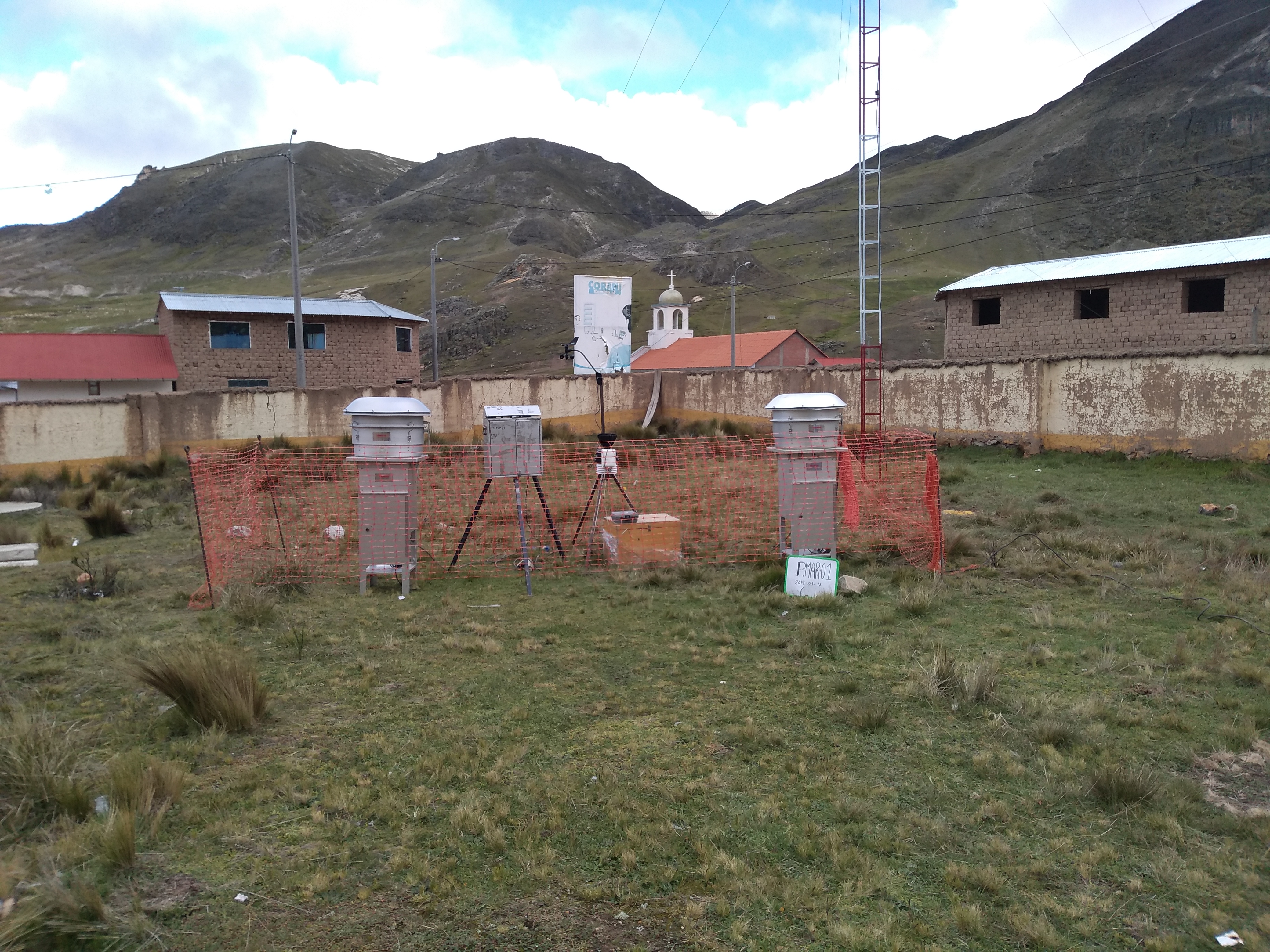 |
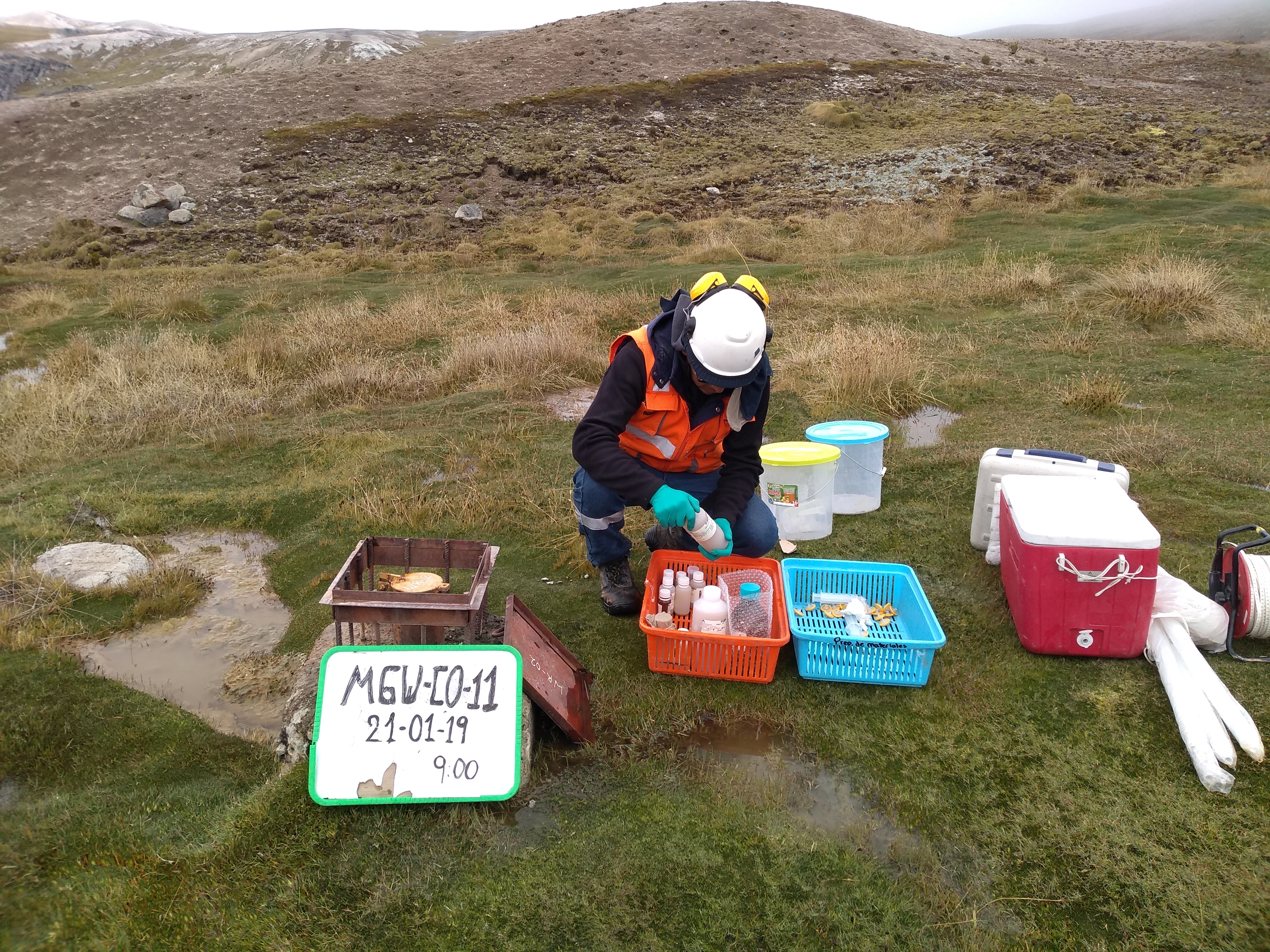 |
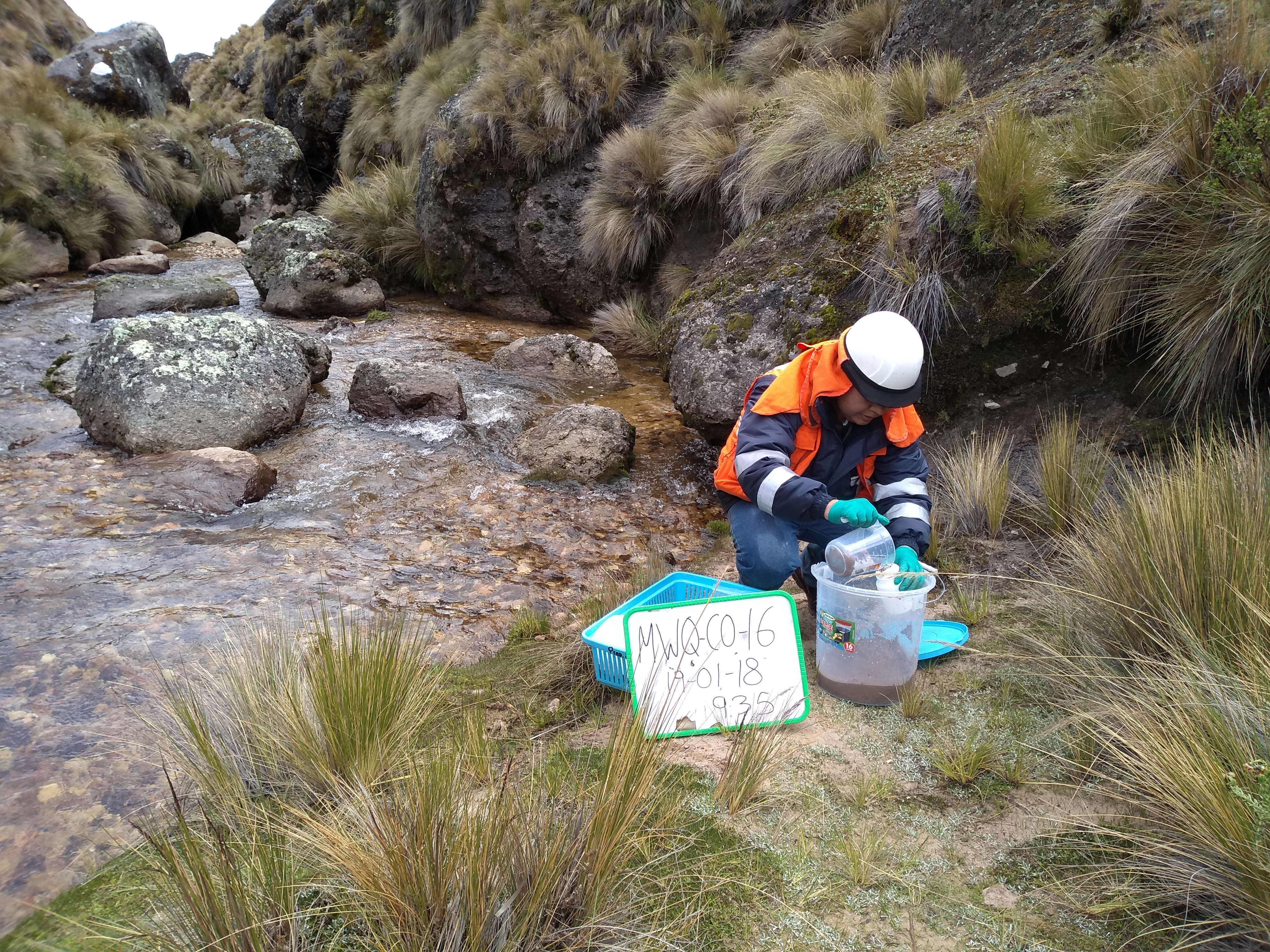 |
|||||||||||||||||||||
| Air Quality Monitoring | Groundwater Testing - Corani Project | Surface Water Testing - Corani Project | |||||||||||||||||||||
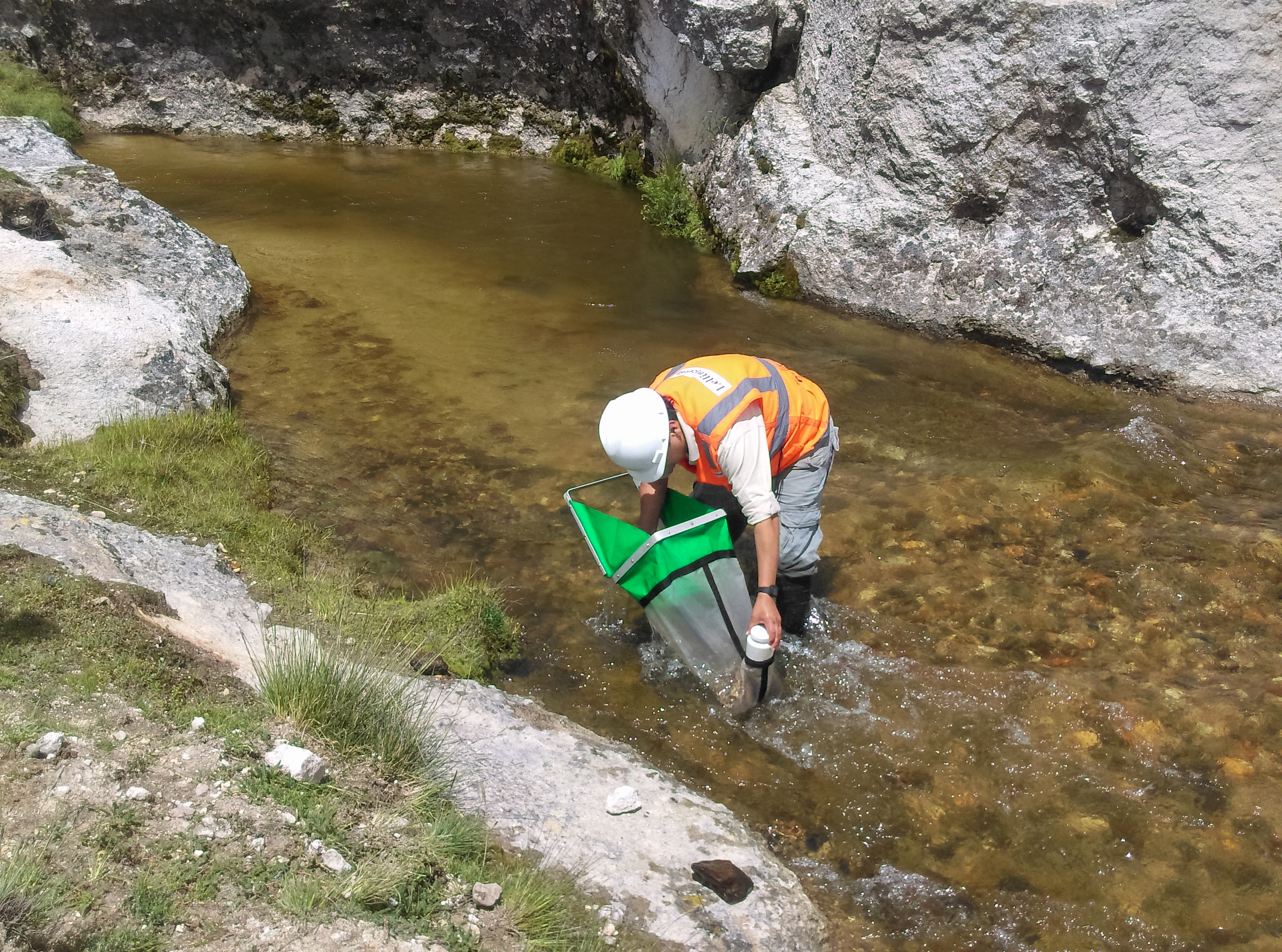 |
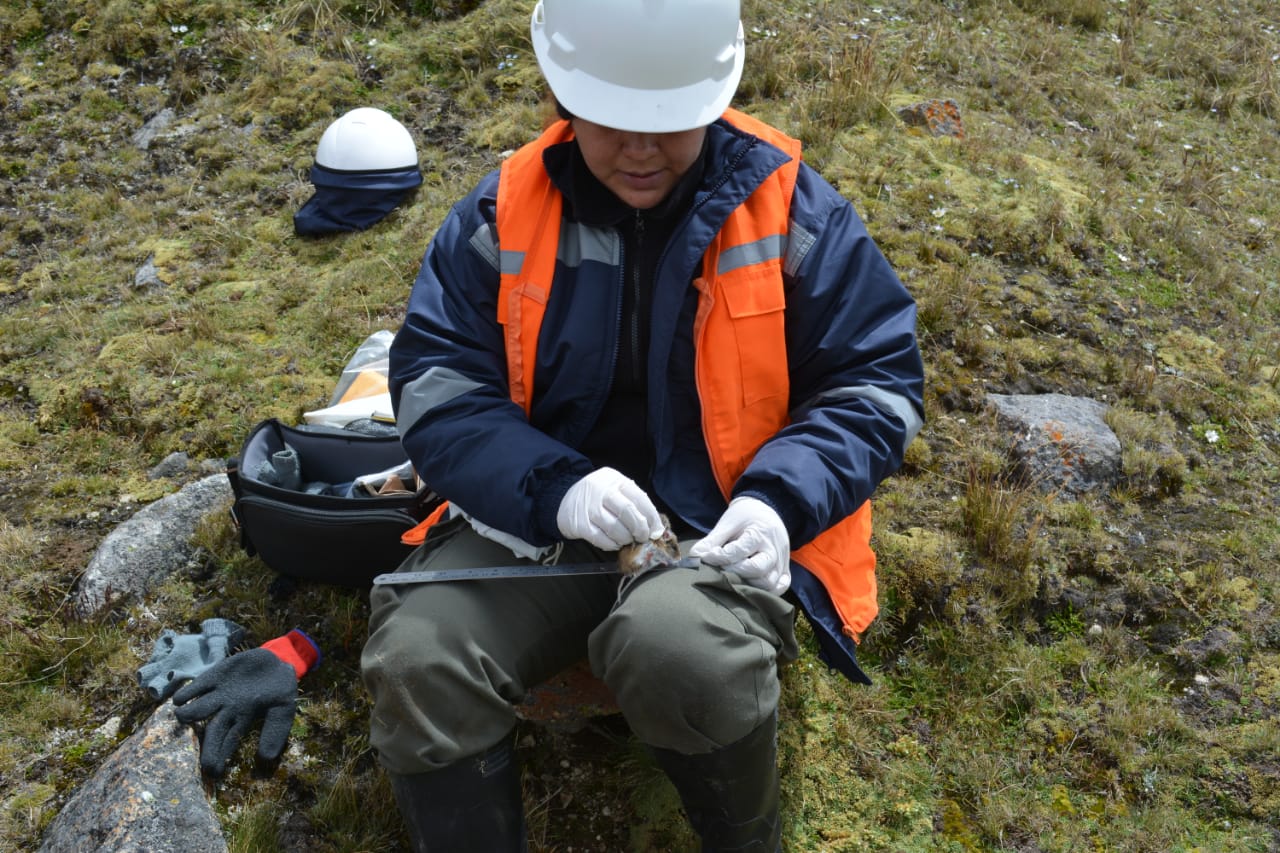 |
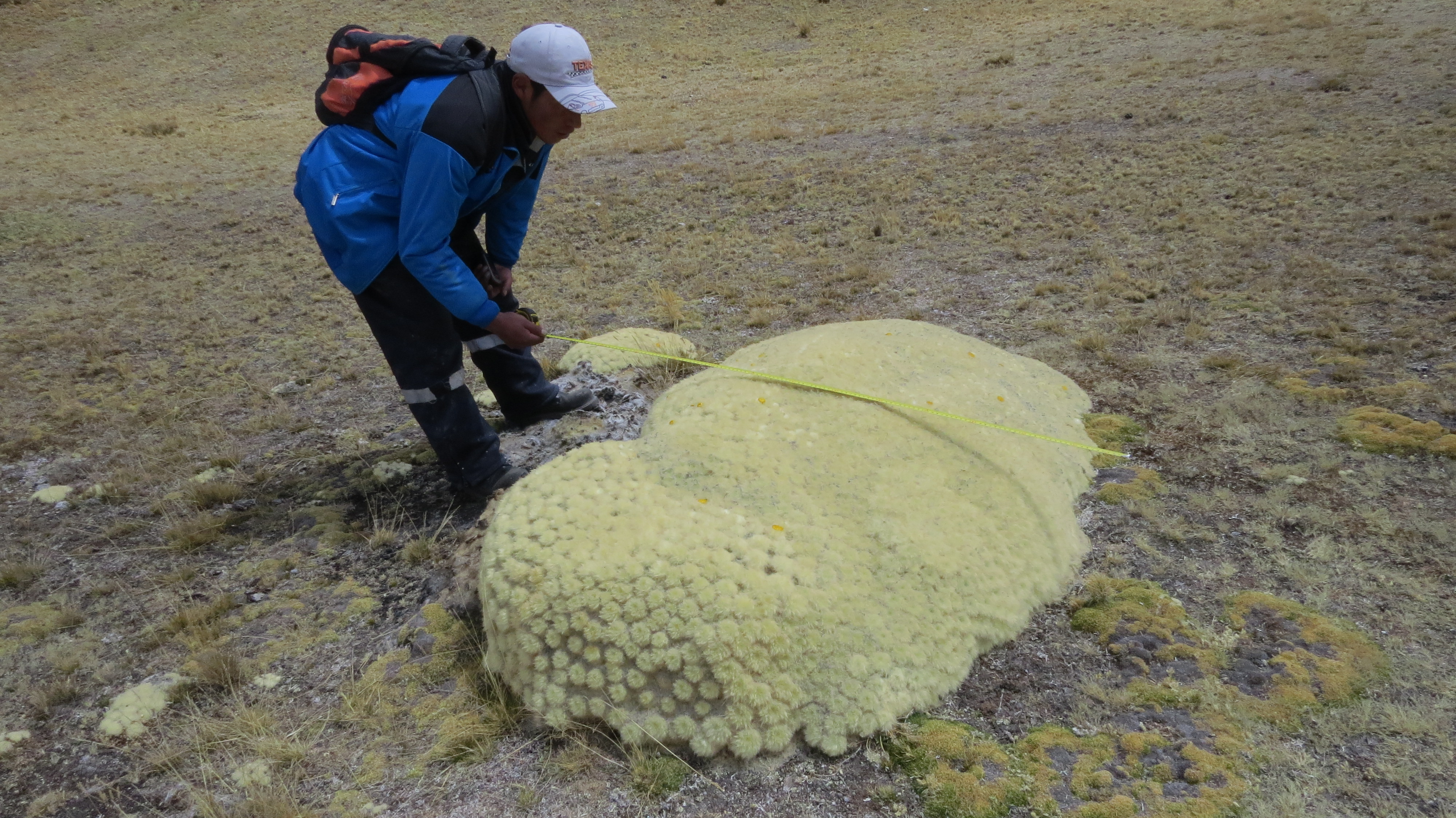 |
|||||||||||||||||||||
| Flora data collection - Corani Project | |||||||||||||||||||||||
| Mammal data collection - Corani Project | |||||||||||||||||||||||
| Hydrobiological survey - Corani Project | |||||||||||||||||||||||
| 1.1 Mine lifecycle stages to which the plan(s) apply | Site development | ||||||||||||||||||||||
| 1.2 The topics addressed by the plan(s) | Ecological and biodiversity impacts | ||||||||||||||||||||||
| 1.3 The underlying references for its plan(s), including whether they are codes, guidelines, standards, or regulations; whether they were developed by the entity, an industry organization, a third-party organization (e.g., a non-governmental organization, a governmental agency, or some combination of these groups) |
The management plans noted above were developed during the preparation of the Corani project ESIA. The Vicuña management and Wetlands compensation plans were developed in greater detail by the consulting firm INSIDEO. These management plans follow Peruvian regulations, the guidelines of the IFC and the Equator Principles. |
||||||||||||||||||||||
| Impacts | |||||||||||||||||||||||
| Does access to the site involve traversing a protected area | No | ||||||||||||||||||||||
| Do any of the entities concessions share a watershed with a protected area | No | ||||||||||||||||||||||
| Provide context and description of site access involving traversing protected areas, and/or watersheds shared with a protected area. Include reference to measures in place to assure access, any proactive programs to support the biodiversity of the protected area, and any formal complaints or compliance issues and related steps to resolve |
The Corani project is not located within a protected area. |
||||||||||||||||||||||
| Percentage of proved reserves in sites with protected conservation status or in areas of endangered species habitat: | 0.0000% | ||||||||||||||||||||||
| Percentage of probable reserves in sites with protected conservation status or in areas of endangered species habitat: | 0.0000% | ||||||||||||||||||||||
| Percentage of inferred, indicated and measured reserves in sites with protected conservation status or in areas of endangered species habitat: | 0.0000% | ||||||||||||||||||||||
| Social | |||||||||||||||||||||||
| Employment | |||||||||||||||||||||||
| Scale of the Organization | |||||||||||||||||||||||
| i. Report the total number of direct employees worldwide (exclude contractors) | 80 | ||||||||||||||||||||||
| ii. Report the total number of contract employees worldwide | 66 | ||||||||||||||||||||||
| Female employees and contractors as percentage of total employees and contractors | 21.2329% | ||||||||||||||||||||||
| Male employees and contractors as percentage of total employees and contractors | 78.7671% | ||||||||||||||||||||||
| Non-binary employees and contractors as percentage of total employees and contractors | 0.0000% | ||||||||||||||||||||||
| Total number of employees and contractors with gender not disclosed | 0 | ||||||||||||||||||||||
| Employees and contractors with gender not disclosed as percentage of total employees and contractors | 0.0000% | ||||||||||||||||||||||
| Report the total number of operations | 1 | ||||||||||||||||||||||
| Employee Information | |||||||||||||||||||||||
| Report the total number of direct employees by employment type (permanent and temporary), by gender: | 80 | ||||||||||||||||||||||
| Total number of permanent employees | 35 | ||||||||||||||||||||||
| Total number of permanent employees - female | 10 | ||||||||||||||||||||||
| Total number of permanent employees - male | 25 | ||||||||||||||||||||||
| Total number of permanent employees - Non-binary | 0 | ||||||||||||||||||||||
| Total number of permanent employees - Gender not disclosed | 0 | ||||||||||||||||||||||
| Total number of temporary employees | 45 | ||||||||||||||||||||||
| Total number of temporary employees - female | 13 | ||||||||||||||||||||||
| Total number of temporary employees - male | 32 | ||||||||||||||||||||||
| Total number of temporary employees - Non-binary | 0 | ||||||||||||||||||||||
| Total number of temporary employees - Gender not disclosed | 0 | ||||||||||||||||||||||
| Report the total number of contractors by employment type (permanent and temporary), by gender: | 66 | ||||||||||||||||||||||
| Total number of permanent contractors | 0 | ||||||||||||||||||||||
| Total number of permanent contractors - female | 0 | ||||||||||||||||||||||
| Total number of permanent contractors - male | 0 | ||||||||||||||||||||||
| Total number of permanent contractors - Non-binary | 0 | ||||||||||||||||||||||
| Total number of permanent contractors - Gender not disclosed | 0 | ||||||||||||||||||||||
| Total number of temporary contractors | 66 | ||||||||||||||||||||||
| Total number of temporary contractors - female | 8 | ||||||||||||||||||||||
| Total number of temporary contractors - male | 58 | ||||||||||||||||||||||
| Total number of temporary contractors - Non-binary | 0 | ||||||||||||||||||||||
| Total number of temporary contractors - Gender not disclosed | 0 | ||||||||||||||||||||||
| Report the total number of employees by employment type (full-time and part-time), by gender: | 78 | ||||||||||||||||||||||
| Total number of full-time employees - female | 22 | ||||||||||||||||||||||
| Total number of part-time employees - female | 0 | ||||||||||||||||||||||
| Total number of full-time employees - male | 56 | ||||||||||||||||||||||
| Total number of part-time employees - male | 0 | ||||||||||||||||||||||
| Total number of full-time employees - Non-binary | 0 | ||||||||||||||||||||||
| Total number of part-time employees - Non-binary | 0 | ||||||||||||||||||||||
| Total number of full-time employees - Gender not disclosed | 0 | ||||||||||||||||||||||
| Total number of part-time employees - Gender not disclosed | 0 | ||||||||||||||||||||||
| Report the total number of contractors by employment type (full-time and part-time), by gender: | 66 | ||||||||||||||||||||||
| Total number of full-time contractors - female | 8 | ||||||||||||||||||||||
| Total number of part-time contractors - female | 0 | ||||||||||||||||||||||
| Total number of full-time contractors - male | 58 | ||||||||||||||||||||||
| Total number of part-time contractors - male | 0 | ||||||||||||||||||||||
| Total number of full-time contractors - Non-binary | 0 | ||||||||||||||||||||||
| Total number of part-time contractors - Non-binary | 0 | ||||||||||||||||||||||
| Total number of full-time contractors - Gender not disclosed | 0 | ||||||||||||||||||||||
| Total number of part-time contractors - Gender not disclosed | 0 | ||||||||||||||||||||||
| Turnover | |||||||||||||||||||||||
| Report the total number and rate of employee turnover during the reporting period, by age group, and gender | |||||||||||||||||||||||
| All Employees: | |||||||||||||||||||||||
| Total number of turnover (the number that left during the period) | 24 | ||||||||||||||||||||||
| Rate of turnover | 16.4948% | ||||||||||||||||||||||
| Female employees: | |||||||||||||||||||||||
| Total number of turnover (the number of females that left during the period) | 6 | ||||||||||||||||||||||
| Rate of turnover, females | 19.6721% | ||||||||||||||||||||||
| Male employees: | |||||||||||||||||||||||
| Total number of turnover (the number of males that left during the period) | 18 | ||||||||||||||||||||||
| Rate of turnover, males | 15.6522% | ||||||||||||||||||||||
| Non-binary employees: | |||||||||||||||||||||||
| Total number of turnover (the number non-binary that left during the period) | 0 | ||||||||||||||||||||||
| Rate of turnover, non-binary | Does Not Apply | ||||||||||||||||||||||
| Turnover & Age Breakdown | |||||||||||||||||||||||
| Employees aged 30 years old and under: | |||||||||||||||||||||||
| Total number of turnover (the number that left during the period) | 3 | ||||||||||||||||||||||
| As percent of total employees | 23.2877% | ||||||||||||||||||||||
| Rate of turnover | 9.2308% | ||||||||||||||||||||||
| Employees aged between 30 and 50 years old: | |||||||||||||||||||||||
| Total number of turnover (the number that left during the period) | 16 | ||||||||||||||||||||||
| As percent of total employees | 58.9041% | ||||||||||||||||||||||
| Rate of turnover | 18.9349% | ||||||||||||||||||||||
| Employees over 50 years old: | |||||||||||||||||||||||
| Total number of turnover (the number that left during the period) | 5 | ||||||||||||||||||||||
| As percent of total employees | 17.8082% | ||||||||||||||||||||||
| Rate of turnover | 17.5439% | ||||||||||||||||||||||
| Identify types of employees captured in the turnover rate calculations | All employees on the payroll | ||||||||||||||||||||||
| Average age of employees | 43 | ||||||||||||||||||||||
| Labour Relations | |||||||||||||||||||||||
| Collective Bargaining Agreements | |||||||||||||||||||||||
| Percentage of total direct employees covered by collective bargaining agreements: | 0.0000% | ||||||||||||||||||||||
| Notice Periods | |||||||||||||||||||||||
| Minimum number of weeks’ notice typically provided to employees and their representatives prior to the implementation of significant operational changes that could substantially affect them | 15 days | ||||||||||||||||||||||
| Occupational Health and Safety | |||||||||||||||||||||||
| Work-related Injuries | |||||||||||||||||||||||
| Injuries - For all employees: | |||||||||||||||||||||||
| i. Number of fatalities as a result of work-related injury | 0 | ||||||||||||||||||||||
| i. Rate of fatalities resulting from work-related injury. Note: calculating per 200,000 hours worked | 0 | ||||||||||||||||||||||
| ii. Number of high-consequence work-related injuries (excluding fatalities) | 0 | ||||||||||||||||||||||
| ii. Rate of high-consequence work-related injuries (excluding fatalities) | 0 | ||||||||||||||||||||||
| iii. Number of recordable work-related injuries | 0 | ||||||||||||||||||||||
| iii. Rate of recordable work-related injuries | 0 | ||||||||||||||||||||||
| iv. Main types of work-related injury, e.g., confined space, trips, falls, etc. |
There were no high-consequence or lost-time work related injuries to personnel during the year ended December 31, 2021. |
||||||||||||||||||||||
| v. Number of hours worked | 170385 | ||||||||||||||||||||||
| Lost Time Injuries (LTIs) | 0 | ||||||||||||||||||||||
| Lost Time Injuries Rate (LTIR) | 0 | ||||||||||||||||||||||
| Injuries - workers who are not employees but whose work and/or workplace is controlled by the organization: | |||||||||||||||||||||||
| i. Number of fatalities as a result of work-related injury | 0 | ||||||||||||||||||||||
| i. Rate of fatalities resulting from work-related injury. Note: calculating per 200,000 hours | 0 | ||||||||||||||||||||||
| ii. Number of high-consequence work-related injuries (excluding fatalities) | 0 | ||||||||||||||||||||||
| ii. Rate of high-consequence work-related injuries (excluding fatalities) | 0 | ||||||||||||||||||||||
| iii. Number of recordable work-related injuries | 0 | ||||||||||||||||||||||
| iii. Rate of recordable work-related injuries | 0 | ||||||||||||||||||||||
| iv. Main types of work-related injury, e.g., confined space, trips, falls, etc. |
There were no high-consequence or lost-time work related injuries to contract personnel during the year ended December 31, 2021. |
||||||||||||||||||||||
| v. Number of hours worked | 167523 | ||||||||||||||||||||||
| Lost Time Injuries (LTIs) | 0 | ||||||||||||||||||||||
| Lost Time Injuries Rate (LTIR) | 0 | ||||||||||||||||||||||
| Combined (Employees and non-employees, but controlled by the organization): | |||||||||||||||||||||||
| Total Hours Worked | 337908 | ||||||||||||||||||||||
| Total number of all work-related injuries | 0 | ||||||||||||||||||||||
| Rate of work-related injuries | 0 | ||||||||||||||||||||||
| Total Lost Time Injuries (LTIs) | 0 | ||||||||||||||||||||||
| Lost Time Injuries Rate (LTIR) | 0 | ||||||||||||||||||||||
| Report the work-related hazards that pose a risk of high-consequence injury, including: | |||||||||||||||||||||||
| i. How have these hazards been determined |
Hazards have been determined using the IPERC baseline and risks are updated as new activities occur. IPERC is the Spanish acronym for the Peruvian legislative process of hazard identification, evaluation and control. |
||||||||||||||||||||||
| ii. Which of these hazards have caused or contributed to high-consequence injuries during the reporting period |
There have been no high-consequence injuries during the reporting period. |
||||||||||||||||||||||
| iii. Actions taken or underway to eliminate these hazards and minimize risks using the hierarchy of controls |
To date we have not had any significant or serious injuries, only a few incidents without causing harm to the worker. When an incident occurs (without personal injuries), the respective investigation is carried out and the causes of the incident are determined. Then, the corresponding corrective measures are taken. |
||||||||||||||||||||||
| Report on actions taken or underway to eliminate other work-related hazards and minimize risks using the hierarchy of controls |
The base IPERC processes have been developed and are reviewed annually, within which controls are established considering their hierarchy. Likewise, the personnel is trained regarding the identification and application of the control hierarchy in the IPERC matrices and in the execution of works. |
||||||||||||||||||||||
| Whether and, if so, why any workers have been excluded from this disclosure, including the types of worker excluded, e.g., short-term contractors |
No workers have been excluded from this disclosure |
||||||||||||||||||||||
| Disclose any contextual information necessary to understand how the data have been compiled, i.e., any standards, methodologies, and assumptions used |
There is an annual training program in compliance with current legal regulations. Likewise, the monthly meetings of the Joint Occupational Health and Safety Committee are held, as well as inspections and other mechanisms required by the regulations. It should be noted that Peru has regulations based on international requirements, such as D. S. 024-2016 and its modifications, which are fully complied by BCM in our Occupational Health and Safety management. |
||||||||||||||||||||||
| Safety Training | |||||||||||||||||||||||
| Disclose the average number of training hours provided to its workforce for health, safety, and emergency management training. | |||||||||||||||||||||||
| Average hours of health, safety, and emergency response training for (a) full-time/direct employees: | 28.77 | ||||||||||||||||||||||
| Average hours of health, safety, and emergency response training for (b) contract employees: | 23.33 | ||||||||||||||||||||||
| Diversity and Equal Opportunity | |||||||||||||||||||||||
| b. Report the percentage of employees per employee category in each of the following diversity categories | |||||||||||||||||||||||
| Board of Directors: | |||||||||||||||||||||||
| Total Board of Directors | 8 | ||||||||||||||||||||||
| Percent Male | 87.5000% | ||||||||||||||||||||||
| Percent Female | 12.5000% | ||||||||||||||||||||||
| Percent Non-Binary | 0.0000% | ||||||||||||||||||||||
| Percent under 30 years of age | 0.0000% | ||||||||||||||||||||||
| Percent between 30 and 50 years of age | 12.5000% | ||||||||||||||||||||||
| Percent over 50 years of age | 87.5000% | ||||||||||||||||||||||
| Senior Management: | |||||||||||||||||||||||
| Total Senior Managers | 6 | ||||||||||||||||||||||
| Percent Male | 83.3333% | ||||||||||||||||||||||
| Percent Female | 16.6667% | ||||||||||||||||||||||
| Percent Non-Binary | 0.0000% | ||||||||||||||||||||||
| Percent under 30 years of age | 0.0000% | ||||||||||||||||||||||
| Percent between 30 and 50 years of age | 0.0000% | ||||||||||||||||||||||
| Percent over 50 years of age | 100.0000% | ||||||||||||||||||||||
| Salaried (excluding Senior Management): | |||||||||||||||||||||||
| Total Middle Managers | 74 | ||||||||||||||||||||||
| Percent Male | 70.2703% | ||||||||||||||||||||||
| Percent Female | 29.7297% | ||||||||||||||||||||||
| Percent Non-Binary | 0.0000% | ||||||||||||||||||||||
| Percent under 30 years of age | 10.8108% | ||||||||||||||||||||||
| Percent between 30 and 50 years of age | 71.6216% | ||||||||||||||||||||||
| Percent over 50 years of age | 17.5676% | ||||||||||||||||||||||
| Technical Employees (skilled hourly): | |||||||||||||||||||||||
| Total Technical Employees | 0 | ||||||||||||||||||||||
| Percent Male | Does Not Apply | ||||||||||||||||||||||
| Percent Female | Does Not Apply | ||||||||||||||||||||||
| Percent Non-Binary | Does Not Apply | ||||||||||||||||||||||
| Percent under 30 years of age | Does Not Apply | ||||||||||||||||||||||
| Percent between 30 and 50 years of age | Does Not Apply | ||||||||||||||||||||||
| Percent over 50 years of age | Does Not Apply | ||||||||||||||||||||||
| Production Employees (unskilled hourly): | |||||||||||||||||||||||
| Total Production Employees | 0 | ||||||||||||||||||||||
| Percent Male | Does Not Apply | ||||||||||||||||||||||
| Percent Female | Does Not Apply | ||||||||||||||||||||||
| Percent Non-Binary | Does Not Apply | ||||||||||||||||||||||
| Percent under 30 years of age | Does Not Apply | ||||||||||||||||||||||
| Percent between 30 and 50 years of age | Does Not Apply | ||||||||||||||||||||||
| Percent over 50 years of age | Does Not Apply | ||||||||||||||||||||||
| Contractors: | |||||||||||||||||||||||
| Total Contractors | 66 | ||||||||||||||||||||||
| Percent Male | 87.8788% | ||||||||||||||||||||||
| Percent Female | 12.1212% | ||||||||||||||||||||||
| Percent Non-Binary | 0.0000% | ||||||||||||||||||||||
| Percent under 30 years of age | 39.3939% | ||||||||||||||||||||||
| Percent between 30 and 50 years of age | 50.0000% | ||||||||||||||||||||||
| Percent over 50 years of age | 10.6061% | ||||||||||||||||||||||
| Security, Human Rights and Rights of Indigenous People | |||||||||||||||||||||||
| Identify the countries of operations within the World Bank's list of “Fragile and Conflict-Affected Situations” | None | ||||||||||||||||||||||
| Describe the nature of any social risks, for all operating countries, that could have a material risk to operations | Please see attached | ||||||||||||||||||||||
|
Bear Creek Mining website - Social Responsibility |
|||||||||||||||||||||||
 |
|||||||||||||||||||||||
| Description of Social Risks | |||||||||||||||||||||||
| Percentage of proved reserves that are located in or near areas of active conflict: | 0.0000% | ||||||||||||||||||||||
| The total amount of proved reserves | 20330000 | ||||||||||||||||||||||
|
The value provided reflects the tonnage (dry Tonnes) of ore classified as Proven Mineral Reserves at the Corani deposit. |
|||||||||||||||||||||||
| Percentage of probable reserves that are located in or near areas of active conflict: | 0.0000% | ||||||||||||||||||||||
| The total amount of probable reserves | 118253000 | ||||||||||||||||||||||
|
The value provided reflects the tonnage (dry Tonnes) of ore classified as Probable Mineral Reserves at the Corani deposit. |
|||||||||||||||||||||||
| Percentage of inferred, indicated and measured reserves that are located in or near areas of active conflict: | 0.0000% | ||||||||||||||||||||||
| Total amount of inferred, indicated and/or measured reserves | 173300000 | ||||||||||||||||||||||
|
The value provided reflects the cumulative total tonnage (dry Tonnes) of ore classified as Measured, Indicated or Inferred Mineral Resources at the Corani deposit. |
|||||||||||||||||||||||
| Percentage of proved reserves that are located in or near areas that are considered to be indigenous peoples’ land: | 100.0000% | ||||||||||||||||||||||
| The total amount of proved reserves | 20330000 | ||||||||||||||||||||||
| Percentage of probable reserves that are located in or near areas that are considered to be indigenous peoples’ land: | 100.0000% | ||||||||||||||||||||||
| The total amount of probable reserves | 118253000 | ||||||||||||||||||||||
| Percentage of inferred, indicated and measured reserves that are located in or near areas that are considered to be indigenous peoples’ land: | 100.0000% | ||||||||||||||||||||||
| Total amount of inferred, indicated and measured reserves | 173300000 | ||||||||||||||||||||||
| Describe due diligence practices and procedures with respect to indigenous rights of communities in which it operates or intends to operate | Please refer to attached response. | ||||||||||||||||||||||
 |
|||||||||||||||||||||||
| Due Diligence practices with respect to indigenous rights | |||||||||||||||||||||||
| Discuss practices and list procedures while operating in areas of conflict |
Bear Creek Mining does not operate nor does it have reserves in an area of conflict. |
||||||||||||||||||||||
| Community Relations | |||||||||||||||||||||||
| Artisanal and Small-Scale Mining | |||||||||||||||||||||||
| Number of company operating sites where artisanal and small-scale mining (ASM) takes place on, or adjacent to, the site (not controlled by company/unauthorized): | 0 | ||||||||||||||||||||||
| Percentage of company operating sites where artisanal and small-scale mining (ASM) takes place on, or adjacent to, the site | 0.0000% | ||||||||||||||||||||||
| Report the associated risks and the actions taken to manage and mitigate these risks |
There is no artisanal or small-scale mining activity on or adjacent to the Company's Corani project concessions or Antapata electrical substation. |
||||||||||||||||||||||
| Programs | |||||||||||||||||||||||
| Report on community relations programs, objectives and achievements in the past 3 years |
Please see the Company's website for details of the Company's community relations programs, objectives and achievements. |
||||||||||||||||||||||
|
Bear Creek Mining website - Social Responsibility Video - Corani Technological Innovation Center |
|||||||||||||||||||||||
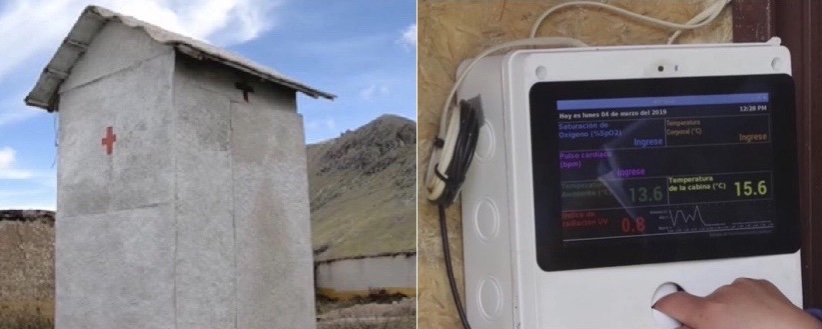 |
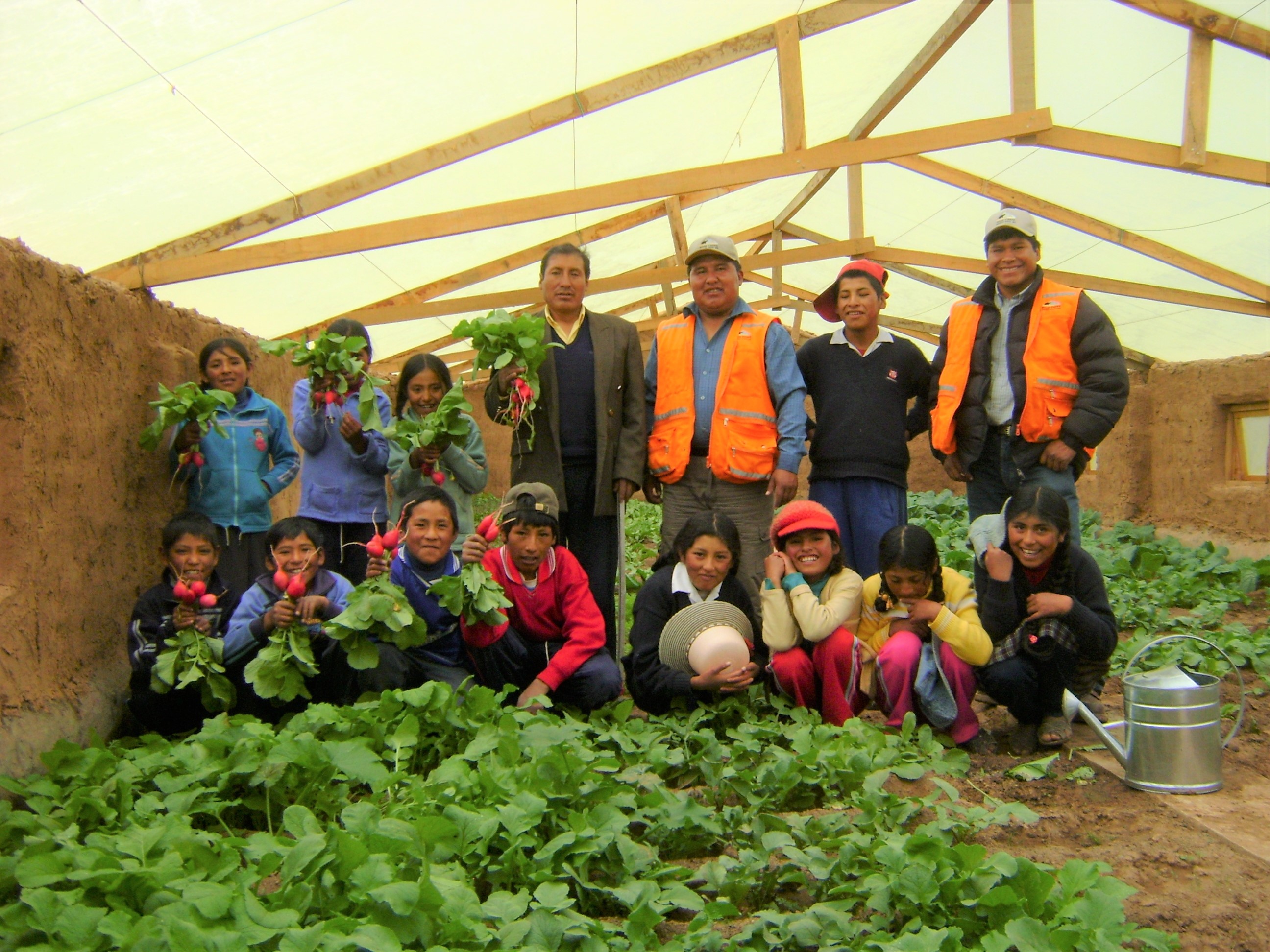 |
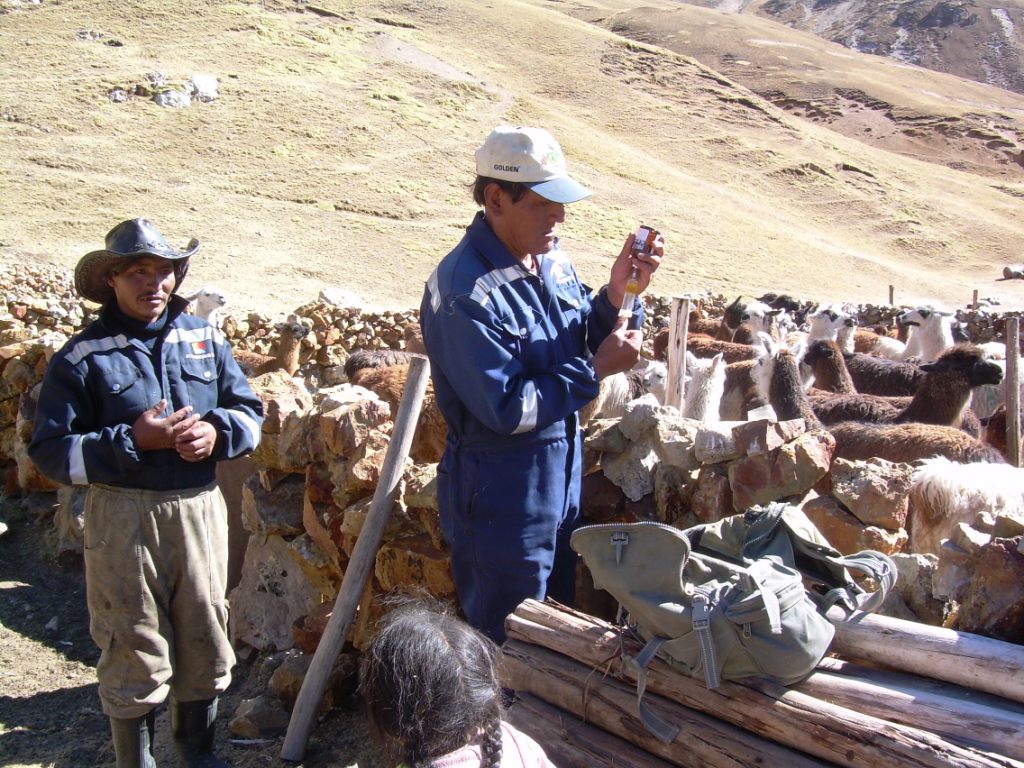 |
|||||||||||||||||||||
| Remote health monitoring booth | |||||||||||||||||||||||
| Greenhouse produce | Alpaca husbandry and animal care | ||||||||||||||||||||||
 |
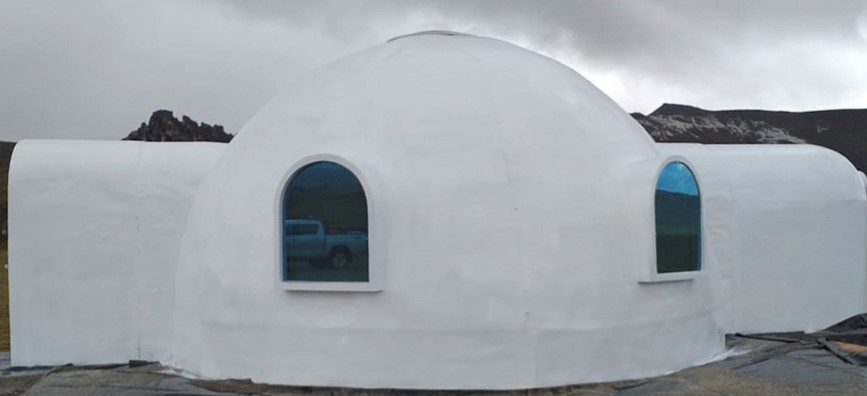 |
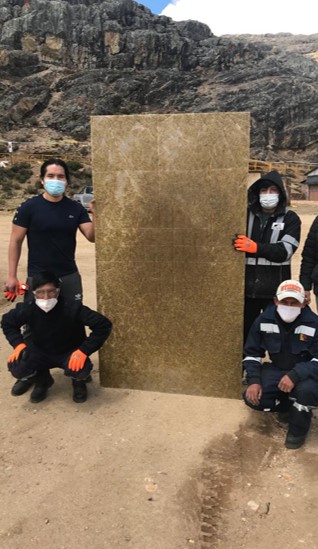 |
|||||||||||||||||||||
| Self-sustainable housing dome designed and produced at Corani Technological Innovation Center | |||||||||||||||||||||||
| "Smart" clothing developed at Corani Technological Innovation Center and adopted by Peruvian military | |||||||||||||||||||||||
| Insulative construction panels made from local ichu grass | |||||||||||||||||||||||
| Discuss the processes, procedures, and practices to manage risks and opportunities associated with the rights and interests of communities in areas where it conducts business |
Bear Creek manages the risks and opportunities associated with the rights and interest of communities in the Corani region primarily by ensuring it practices fulsome, open, honest, transparent and frequent communication with communities, community leaders and individual community members. The Company has a community relations team of approximately 25 people who maintain a consistent presence in the area and who work hard to establish and maintain a trusting relationship with community members. |
||||||||||||||||||||||
| Risks and Opportunities | |||||||||||||||||||||||
| Disclose the total number of site shutdowns or project delays due to non-technical factors. | 0 | ||||||||||||||||||||||
| Disclose the total aggregate duration (in days) of site shutdowns or project delays due to non-technical factors. | 0 | ||||||||||||||||||||||
| Governance | |||||||||||||||||||||||
| Climate Change | |||||||||||||||||||||||
| Oversight | |||||||||||||||||||||||
| Is there board-level oversight of climate-related issues within your organization |
Not currently, but we plan to do so within the next two years |
||||||||||||||||||||||
|
The Company has established an Operations, Safety and Sustainability Committee that is responsible for oversight of sustainability issues, including climate change, and for reporting these issues to the Board. While the Company recognizes the importance of climate change issues, as it was a development stage company with no operating mines as of December 31, 2021, it has not at this time adopted a formal process for the assessment or management of climate-related issues at the Board level. As the Company continues to develop, it intends to adopt such measures. |
|||||||||||||||||||||||
| Responsibility | |||||||||||||||||||||||
| Provide the highest management-level position(s) or committee(s) with responsibility for climate-related issues: | Sustainability committee | ||||||||||||||||||||||
|
The Company's Operations, Safety and Sustainability Committee oversees, on behalf of the Board, issues related to the Company's operational impact on the environment and communities, including impacts, risks and opportunities related to climate change. As the Company was a development-stage company during 2021 with no producing mines in operation, its evaluation of climate change risk is at an early stage and any potential mitigation responses it may employ are unknown at this time. The Chief Operating Officer is the highest management-level position with responsibility for sustainability, including climate-related issues. The COO reports directly to the CEO and to the Operations, Safety and Sustainability Committee regarding all sustainability issues. |
|||||||||||||||||||||||
| Nature of primary responsibility |
Assessing climate-related risks and opportunities |
||||||||||||||||||||||
| Reporting | |||||||||||||||||||||||
| Frequency of reporting to the board on climate-related issues | As important matters arise | ||||||||||||||||||||||
| Incentives | |||||||||||||||||||||||
| Do you provide incentives for the management of climate-related issues, including the attainment of targets |
No, and we do not plan to introduce them in the next two years |
||||||||||||||||||||||
|
Because of its current size and stage of development, Bear Creek Mining does not currently have a prescriptive executive compensation plan. When making compensation decisions regarding the Company's executives, the Compensation Committee considers the level of responsibility, experience, and skills of the executive, the executive's performance in relation to achievement of the Company's strategic goals, the executive's performance in managing unplanned situations, the financial and operating performance of the Company, and general market conditions and trends relevant to the Company and the mining industry in general. |
|||||||||||||||||||||||
| Risk and Opportunity Management | |||||||||||||||||||||||
| Does your organization have a process for identifying, assessing, and responding to climate-related risks and opportunities |
No - important but not an immediate business priority |
||||||||||||||||||||||
|
As the Company had no operating mines during the year ended December 31, 2021, its financial and operational risk associated with climate-related issues is minimal. The Company's Board of Directors reviews and assesses the Company's potential risks, including those related to climate change, at least annually, which risks are discussed in its Annual Information Form. Specific operational risks, if any, are brought to the attention of the Board if and as they occur or evolve and generally follow the Company's employee, management, executive, Board committee and Board reporting structure. |
|||||||||||||||||||||||
| Risk Assessments | |||||||||||||||||||||||
| Have you identified any inherent climate-related risks with the potential to have a substantive financial or strategic impact on your business |
No - risks exist, but none with potential to have a substantive financial or strategic impact on business |
||||||||||||||||||||||
| Opportunity Assessments | |||||||||||||||||||||||
| Have you identified any climate-related opportunities with the potential to have a substantive financial or strategic impact on your business | No | ||||||||||||||||||||||
| Strategy | |||||||||||||||||||||||
| Have climate-related risks and opportunities influenced your organization’s strategy and/or financial planning | Other, please specify | ||||||||||||||||||||||
|
Bear Creek Mining is a development stage company with no operating mines during the year ended December 31, 2021. However, the Company recognizes the potential for climate related risks and opportunities associated with its proposed Corani mine. These risks and opportunities are primarily related to predicted local rainfall amounts, which have the potential to affect the Corani processing plant's required water balance, the fresh water pond refresh rate, and the saturation levels of the tailings. The Corani mine design incorporates substantive measures to mitigate the risk of unexpected rainfall amounts on each of these mine components. Aside from the above, climate-related risks and opportunities have not influenced the Company's overall business strategy or financial planning. |
|||||||||||||||||||||||
| Water Management | |||||||||||||||||||||||
| Quality and Quantity Dependency | |||||||||||||||||||||||
| Rate the importance (current and future) of freshwater quality and quantity to the success of your business: | |||||||||||||||||||||||
| Direct use importance rating | Important | ||||||||||||||||||||||
| Indirect use importance rating | Neutral | ||||||||||||||||||||||
| Rate the importance (current and future) of sufficient quantity of recycled, brackish and/or produced water for the success of your business: | |||||||||||||||||||||||
| Direct use importance rating | Vital | ||||||||||||||||||||||
| Indirect use importance rating | Neutral | ||||||||||||||||||||||
| Risk Assessments | |||||||||||||||||||||||
| Does your organization undertake a water-related risk assessment | Yes, water-related risks are assessed | ||||||||||||||||||||||
| Select the options that best describe your procedures for identifying and assessing water-related risks: | |||||||||||||||||||||||
| i. Coverage | Full | ||||||||||||||||||||||
| ii. Risk Assessment Procedure |
Water risks are assessed in an environmental risk assessment |
||||||||||||||||||||||
| iii. frequency of Risk Assessment | Not defined | ||||||||||||||||||||||
| iv. How far into the future are risks considered | More than 6 years | ||||||||||||||||||||||
| Have you identified any inherent water-related risks with the potential to have a substantive financial or strategic impact on operations | No | ||||||||||||||||||||||
|
The Company has not identified any water- related risks through its extensive technical studies to date that would have a substantial financial or strategic impact. However, this will continue to be evaluated and reviewed in subsequent stages of construction and operations at the Corani project. |
|||||||||||||||||||||||
| Opportunity Assessments | |||||||||||||||||||||||
| Have you identified any water-related opportunities with the potential to have a substantive financial or strategic impact on your business | No | ||||||||||||||||||||||
|
The Company has not identified any water- related opportunities through its extensive technical studies to date that would have a substantial financial or strategic impact. However, this will continue to be evaluated and reviewed in subsequent stages of construction and operations at the Corani project. |
|||||||||||||||||||||||
| Responsibility | |||||||||||||||||||||||
| Provide the highest management-level position(s) or committee(s) with responsibility for water-related issues | Sustainability Committee | ||||||||||||||||||||||
|
The Company was a development-stage company during 2021 with no producing mines in operation. The Company's Operations, Safety and Sustainability Committee oversees, on behalf of the Board, issues related related to the Company's operational impact on the environment and communities, including impacts, risks and opportunities related to water-related issues. The Chief Operating Officer is the highest management-level position with responsibility for sustainability, including water-related issues. The COO reports directly to the CEO and to the Operations, Safety and Sustainability Committee regarding all sustainability issues. At this stage of the Company's development, any material water-related issues related to the Corani project would be brought to the attention of the Operations, Safety and Sustainability Committee, if, as and when they occur, by the COO or CEO, and reported to the Board. |
|||||||||||||||||||||||
| Policy | |||||||||||||||||||||||
| Does your organization have a documented water policy |
No, but we plan to develop one within the next 2 years |
||||||||||||||||||||||
|
The Company may consider adoption of a formal corporate-level water policy in the future if and as appropriate for its operational stage. |
|||||||||||||||||||||||
| Reporting | |||||||||||||||||||||||
| Frequency of reporting to the board on water-related issues | As important matters arise | ||||||||||||||||||||||
| Incentives | |||||||||||||||||||||||
| Do you provide incentives to C-suite employees or board members for the management of water-related issues |
No, and we do not plan to introduce them in the next two years |
||||||||||||||||||||||
|
Because of its current size and stage of development, Bear Creek Mining does not currently have a prescriptive executive compensation plan. When making compensation decisions regarding the Company's executives, the Compensation Committee considers the level of responsibility, experience, and skills of the executive, the executive's performance in relation to achievement of the Company's strategic goals, the executive's performance in managing unplanned situations, the financial and operating performance of the Company, and general market conditions and trends relevant to the Company and the mining industry in general. |
|||||||||||||||||||||||
| Strategy | |||||||||||||||||||||||
| Are water-related issues integrated into any aspects of your long-term strategic business plan: | Other, please specify | ||||||||||||||||||||||
|
Water-related issues are heavily factored into the Corani ESIA and mine plan and are integrated into the Company's business strategy by virtue of the importance of the proposed Corani mine as a material component of the Company's long term strategy. |
|||||||||||||||||||||||
| General Disclosure | |||||||||||||||||||||||
| Structure | |||||||||||||||||||||||
| a. Report the governance structure of the organization, including committees of the highest governance body, e.g., the Board of Directors, the Executives, the Board Environment Committee, Board Safety Committee, the Advisory Committee, etc. |
The Directors who comprise Bear Creek Mining's Board of Directors are elected or re- elected by the Company's shareholders annually. |
||||||||||||||||||||||
|
The Board of Directors oversee Management in its execution of the Company's business goals and strategies. The Board of Directors is the Company's highest governance body. The Company's Board, Committee and Management organizational reporting structure is attached. Bear Creek Mining Corporate Governance Charters and Policies |
|||||||||||||||||||||||
 |
|||||||||||||||||||||||
| Board and Management Organizational and Reporting Structure (December 31, 2021) | |||||||||||||||||||||||
| Committees | |||||||||||||||||||||||
| b. Report the committees responsible for decision-making on economic, environmental, and social topics, e.g., the Board of Directors, the Executives, the Board Environment Committee, Board Safety Committee, the Advisory Committee, etc. |
At December 31, 2021 the Company had four standing committees: Audit; Compensation; Nominating and Corporate Governance; and, Operations, Safety and Sustainability. The Operations, Safety and Sustainability Committee is the board committee that is responsible for overseeing Sustainability issues. The Audit Committee is the board committee that is responsible for overseeing the Company's financial and economic decisions. Please refer to the Board, Committee and Management organizational reporting structure attached in relation to the question above. |
||||||||||||||||||||||
| Responsibility | |||||||||||||||||||||||
| a. Has the organization appointed an executive-level position or positions with responsibility for economic, environmental, and social topics , e.g., is it part of the Governance structure of the company, the CFO or internal audit reporting to the Board | Yes | ||||||||||||||||||||||
|
The CEO reports to the Board and/or its committees as necessary on matters related to economic, environmental and social topics. |
|||||||||||||||||||||||
| Reporting Structure | |||||||||||||||||||||||
| b. Report whether position holders report directly to the highest governance body or CEO |
The Company's CEO reports directly to the Board of Directors and is responsible for economic, social and environmental issues. The Company's COO, CFO and VP Corporate Communications report directly to the CEO on: operations, social and environmental matters; financial and economic matters; and, communications and regulatory matters, respectively. |
||||||||||||||||||||||
| Consultation Process | |||||||||||||||||||||||
| Report the processes for consultations between stakeholders and the highest governance body on economic, environmental and social topics, e.g., for most mining companies it would be the executives and operations and not the Board, and if delegated, explain how | Please refer to the attached response. | ||||||||||||||||||||||
|
SEDAR OTC Markets (Bear Creek Mining profile) Bolsa Valores de Lima (Bear Creek Mining profile) |
|||||||||||||||||||||||
 |
|||||||||||||||||||||||
| Stakeholder consultation processes | |||||||||||||||||||||||
| Composition | |||||||||||||||||||||||
| Report the composition of the highest governance body and its committees by: | |||||||||||||||||||||||
| Number of executive members | 1 | ||||||||||||||||||||||
| Number of non-executive members | 7 | ||||||||||||||||||||||
| Number of independent members | 7 | ||||||||||||||||||||||
| Less than 3 years | 4 | ||||||||||||||||||||||
| 3-6 years | 1 | ||||||||||||||||||||||
| 6-9 years | 0 | ||||||||||||||||||||||
| More than 10 years | 3 | ||||||||||||||||||||||
| Lists of each individual’s other significant positions and commitments, and the nature of the commitments, e.g., other boards and executive positions |
See attached file for information related to each of the Company's directors as of December 31, 2021 |
||||||||||||||||||||||
 |
|||||||||||||||||||||||
| Director information December 31, 2021 | |||||||||||||||||||||||
| Number of Male governance body members | 7 | ||||||||||||||||||||||
| Number of Female governance body members | 1 | ||||||||||||||||||||||
| Number of members from under-represented social groups | 0 | ||||||||||||||||||||||
| Description of competencies relating to economic, environmental, and social topics |
Please refer to the Company's website for profiles of the Company's Directors. |
||||||||||||||||||||||
| Bear Creek Mining Directors | |||||||||||||||||||||||
| Description of stakeholder representation |
All of Bear Creek Mining's Directors, who served as a director as of December 31, 2021, hold shares, stock options, restricted share units and deferred share units in the Company. Details are provided in the attached document. |
||||||||||||||||||||||
|
None of the shareholders of Bear Creek Mining that own greater than 10% of the issued and outstanding shares of the Company (such shareholding information being to the best of the Company's knowledge, based on publicly available information), nor their affiliates or representatives, hold a seat on the Company's Board of Directors or are an officer, employee or consultant to the Company. |
|||||||||||||||||||||||
 |
|||||||||||||||||||||||
| Directors' holdings in Bear Creek Mining Corporation (as of December 31, 2021) | |||||||||||||||||||||||
| Board Diversity | |||||||||||||||||||||||
| If available, provide a link to the entity's Board Diversity Policy Statement or attach the related document |
Bear Creek Mining has not adopted a Diversity Policy as of December 31, 2021 but plans to do so during 2022. |
||||||||||||||||||||||
| Non-Executive Director | |||||||||||||||||||||||
| Is the chair of the highest governance body also an executive officer in the organization | No | ||||||||||||||||||||||
| Conflicts of Interest | |||||||||||||||||||||||
| Report the processes for the highest governance body to ensure conflicts of interest are avoided and managed, e.g., list procedures |
The Company has a Code of Business Conduct and Ethics that governs its responsibilities regarding conflicts of interest. |
||||||||||||||||||||||
|
Members of the Board of Directors of Bear Creek Mining are required to disclose conflicts of interest including their positions as directors of other public and private companies, and in meetings of the Board or its committees must declare and refrain from discussion or voting on any potential or actual conflict of interest in the business affairs of the Company. As a listed public issuer, the Company is subject to annual third party Financial and Procedural Audit. |
|||||||||||||||||||||||
 |
|||||||||||||||||||||||
| Bear Creek Mining Code of Business Conduct and Ethics | |||||||||||||||||||||||
| Report whether conflicts of interest are disclosed to stakeholders, including, as a minimum: | Yes | ||||||||||||||||||||||
| i. Cross-board membership | Yes | ||||||||||||||||||||||
|
The Company's Information Circular includes information related to positions held by its Directors on the boards or in senior management of other public companies. Please refer to Director Information attachment under Board Composition, above. |
|||||||||||||||||||||||
| ii. Cross-shareholding with suppliers and other stakeholders | No | ||||||||||||||||||||||
| iii. Existence of controlling shareholder | Yes | ||||||||||||||||||||||
|
The Company's Information Circular discloses information regarding any shareholders owning greater than 10% of the Company's issued and outstanding shares (such information being to the best of the Company's knowledge based on publicly available sources). No member of the Company's Board of Directors or senior management owns a controlling shareholder position in the Company. |
|||||||||||||||||||||||
| iv.Related third party disclosures | Yes | ||||||||||||||||||||||
|
Related third-party transactions are disclosed in the Company's quarterly and annual financial statements and accompanying management's discussion and analysis |
|||||||||||||||||||||||
| Transparency | |||||||||||||||||||||||
| Report the highest governance body’s and senior executives’ roles in the development, approval, and updating of the organization’s purpose, value or mission statements, strategies, policies, and goals related to economic, environmental, and social topics |
The Board of Directors, under the advice of the Company's Operations, Safety and Sustainability Committee, is the highest governance body mandated with assessing and reporting on sustainability matters. On behalf of the Board of Directors, the OSS Committee reviews the Company's ESG disclosure in its Information Circular. |
||||||||||||||||||||||
|
The Company has not adopted a Sustainability Policy at this time. |
|||||||||||||||||||||||
 |
|||||||||||||||||||||||
| Operations, Safety and Sustainability Committee Charter (as of December 31, 2021) | |||||||||||||||||||||||
| Report on the measures taken to develop and enhance the highest governance body’s collective knowledge of economic, environmental, and social topics, e.g., board training |
Bear Creek Mining does not conduct formal board training, including with respect to sustainability matters. However, the Directors of the Company have extensive experience in board and senior management roles at mining companies operating globally. |
||||||||||||||||||||||
|
This experience, combined with management's regular reports to the Board on social and environmental matters (via monthly reports and Board and committee meetings) ensures the Board of Directors of the Company are well versed on sustainability issues in general and those specific to the Company. In December 2019 Bear Creek Mining engaged a third party consultant to independently review its Corani project social license and the resulting consultant's report was provided to the Board and posted on the Company's website. |
|||||||||||||||||||||||
 |
|||||||||||||||||||||||
| On Common Ground report December 2019 | |||||||||||||||||||||||
| Report the actions taken in response to evaluation of the highest governance body’s performance with respect to governance of economic, environmental, and social topics, including, as a minimum, changes in membership and organizational practice, (response to external evaluations) |
As with all of its Board committees, the Company's Operations, Safety and Sustainability Committee reviews its Charter annually, and reports any material issues, including sustainability matters, to the Board at least annually. The Company discloses information related to economic, social and environmental matters to shareholders at least quarterly via its financial statements and accompanying management's discussion and analysis, and annually via its Annual Information Form. |
||||||||||||||||||||||
| Report the highest governance body’s role in identifying and managing economic, environmental, and social topics and their impacts, risks, and opportunities – including its role in the implementation of due diligence processes, (committee roles) |
All economic, environmental, and social topics and their impacts, risks, and opportunities are discussed in Audit Committee and Operations, Safety and Sustainability Committee meetings, respectively. Any issues requiring action are identified, addressed, and reported to the Board on a regular basis. |
||||||||||||||||||||||
| Is stakeholder consultation used to support the highest governance body’s identification and management of economic, environmental, and social topics and their impacts, risks, and opportunities, and if delegated, explain how | Yes | ||||||||||||||||||||||
|
The Company's CEO and senior officers speak with stakeholders frequently and report any feedback regarding economic, environmental and social matters to the Board on a regular basis. |
|||||||||||||||||||||||
| Remuneration | |||||||||||||||||||||||
| Report how performance criteria in the remuneration policies relate to the highest governance body’s and senior executives’ objectives for economic, environmental, and social topics | Please refer to the attached response. | ||||||||||||||||||||||
 |
|||||||||||||||||||||||
| Description of ESG criteria performance in remuneration policies | |||||||||||||||||||||||
| How are stakeholders’ views sought and taken into account regarding remuneration |
Bear Creek's CEO and other members of senior management hold frequent meetings with the Company's investors and other stakeholders and encourage stakeholders to provide feedback regarding any aspect of the Company's operations and management. Concerns regarding the Company's executive or Director compensation have not been raised. Bear Creek Mining has not adopted a "Say on Pay" policy or mechanism, however, extensive information related to remuneration paid to executives and Directors (who are elected or re-elected by shareholders annually) is provided in the Company's Information Circular. |
||||||||||||||||||||||
| If applicable, report the results of votes on remuneration policies and proposals |
All matters related to remuneration policies and proposals are reviewed by Bear Creek Mining's Compensation Committee and approved by the Board of Directors. Please see additional details below and the news release attached. |
||||||||||||||||||||||
|
The Company has a 10% "Rolling" Stock Option Plan approved by the Board of Director in 2008 that, in accordance with TSX-V regulations, requires annual shareholder approval or re-approval. The Stock Option Plan is used, at the discretion of the Board, to provide long-term incentive awards to eligible participants (including directors, officers, employees and consultants). At the Company's 2021 AGM a resolution to re-approve the Stock Option Plan was passed by shareholders of the Company. News Release June 9, 2021 re AGM Results |
|||||||||||||||||||||||
| Ethics | |||||||||||||||||||||||
| Describe the management system and due diligence procedures for assessing and managing corruption and bribery risks internally and associated with business partners in its value chain. |
Bear Creek Mining requires all Directors, officers, employees, supply-chain service providers and contractors to comply with the Company's Code of Business Conduct and Ethics and the Company's Anti-Bribery and Anti-Corruption Policy. |
||||||||||||||||||||||
|
All employees, supply-chain providers and contractors must be trained in our Code of Business Conduct and Ethics during their induction before entering our Corani project site. In 2021, Bear Creek Mining did not register any incidents of corruption or bribery. The Code of Conduct and Code of Ethics of the Company's Peruvian subsidiaries are provided in the links below. Código de Conducta BCM SAC Código de Ética empresarial BCM SAC |
|||||||||||||||||||||||
 |
 |
||||||||||||||||||||||
| Bear Creek Mining Code of Conduct and Business Ethics (as of December 31, 2021) | Bear Creek Mining Anti-Bribery and Anti-Corruption Policy (as of December 31, 2021) | ||||||||||||||||||||||
| Report net production from activities located in the countries with the 20 lowest rankings in Transparency International’s Corruption Perception Index (CPI) (Saleable tonne): | 0 | ||||||||||||||||||||||
| Anti-corruption | |||||||||||||||||||||||
| Communication and Training | |||||||||||||||||||||||
| i. Total number of governance body members that have received training on anti-corruption, broken down by region | 8 | ||||||||||||||||||||||
| ii. Total percentage of governance body members that have received training on anti-corruption, broken down by region: | 100.0000% | ||||||||||||||||||||||
| Total number and percentage of employees that have received training on anti-corruption, broken down by employee category and region: | 80 | ||||||||||||||||||||||
| 1a. Total number of employees that received training on anti-corruption | 80 | ||||||||||||||||||||||
|
The Company's employees have been provided with the Company's Anti-Bribery and Anti- Corruption Policy and have each signed acknowledgements that they have read, understood and will comply with this policy. |
|||||||||||||||||||||||
| Total number of employees | 80 | ||||||||||||||||||||||
| 1b. Total percentage of employees that received training on anti-corruption | 100.0000% | ||||||||||||||||||||||
| 2a. Total number of senior employees that received training on anti-corruption | 6 | ||||||||||||||||||||||
| Total number of senior employees | 6 | ||||||||||||||||||||||
| 2b. Percentage of senior employees that received training on anti-corruption | 100.0000% | ||||||||||||||||||||||
| 3a. Total number of middle management employees have received training on anti-corruption | 33 | ||||||||||||||||||||||
| Total number of middle management employees | 33 | ||||||||||||||||||||||
| 3b. Percentage of middle management employees have received training on anti-corruption | 100.0000% | ||||||||||||||||||||||
| 4a. Total number of technical employees that received training on anti-corruption | 0 | ||||||||||||||||||||||
| Total number of technical employees | 0 | ||||||||||||||||||||||
| 4b. Percentage of technical employees that received training on anti-corruption | Does Not Apply | ||||||||||||||||||||||
| 5a. Total number of production employees that received training on anti-corruption | 0 | ||||||||||||||||||||||
| Total number of production employees | 0 | ||||||||||||||||||||||
| 5b. Percentage of production employees that received training on anti-corruption | Does Not Apply | ||||||||||||||||||||||
| 6a. Total number of administrative employees that received training on anti-corruption | 41 | ||||||||||||||||||||||
| Total number of administrative employees | 41 | ||||||||||||||||||||||
| 6b. Percentage of administrative employees that received training on anti-corruption | 100.0000% | ||||||||||||||||||||||
| Material Topics | |||||||||||||||||||||||
| Process to determine material topics | |||||||||||||||||||||||
| Describe the process followed to determine its material topics, including: | |||||||||||||||||||||||
| i. How has the organization identified actual and potential, negative and positive impacts on the economy, environment, and people, including impacts on their human rights, across its activities and business relationships; provide details. |
• Economic impact assessment • Environmental impact assessment • Social impact assessment • Civil society organizations |
||||||||||||||||||||||
| ii. How has the organization prioritized the impacts for reporting based on their significance; |
Bear Creek Mining does not have a formal process for identifying or prioritizing material topics or their economic, environmental or social impacts. The Company relies on the substantial experience of its directors and management related to exploration, development, construction, finance, community relations, and environmental issues to assesses material topics. The Company assesses and addresses, if possible, impacts if, as, and when they occur, and seeks ways to mitigate any negative impacts before they occur. |
||||||||||||||||||||||
| Specify the stakeholders and experts whose views have informed the process of determining its material topics and provide details. |
• Employees and other workers • Governments • Local communities • Shareholders and other capital providers |
||||||||||||||||||||||
| List of material topics | |||||||||||||||||||||||
| List the organization's material topics |
• Economic Performance • Market Presence • Local Communities |
||||||||||||||||||||||
|
The Board of Bear Creek Mining has not undertaken a formal material topic assessment as of December 31, 2021. The Company will undertake such an assessment when reasonable in relation to its stage of development. |
|||||||||||||||||||||||
| List the organization's non-material topics | Energy | ||||||||||||||||||||||
|
The Board of Bear Creek Mining has not undertaken a formal material topic assessment as of December 31, 2021. The Company will undertake such an assessment when reasonable in relation to its stage of development. |
|||||||||||||||||||||||
| Provide reason for considering such topics not material, provide details. | Not applicable | ||||||||||||||||||||||
|
As the Company was a development stage company with no operating mines at December 31, 2021, topics that are material to the Company's business and financial results are limited in scope at this time. |
|||||||||||||||||||||||
| Report changes to the list of material topics compared to the previous reporting period. | Not applicable | ||||||||||||||||||||||
| Tax | |||||||||||||||||||||||
| Describe the approach to stakeholder engagement and management of stakeholder concerns related to tax, including: | |||||||||||||||||||||||
| i. The approach to engagement with tax authorities |
The Company adheres to all tax laws and regulations in the regions in which it operations (nationally, provincially and locally). The Company adopts a pro-active approach to both present and potential tax legislation. The Company engages with stakeholders on a regular basis to explain the tax, royalty and government frameworks and their impacts on the Company's operations. The Company considers all stakeholder concerns if any are raised. |
||||||||||||||||||||||
| ii. The approach to public policy advocacy on tax | Please see explanation above. | ||||||||||||||||||||||
| iii. the processes for collecting and considering the views and concerns of stakeholders, including external stakeholders | Please see explanation above. | ||||||||||||||||||||||
| , Planet Earth's complete ESG reporting solution. | |||||||||||||||||||||||
